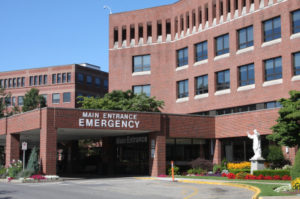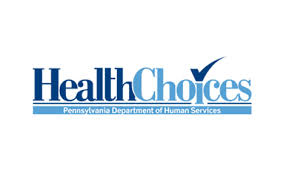PA Health Policy Update for May 12
The following is an update of selected state health policy developments in Pennsylvania from May 8 – 12. (Some of the language used below is taken directly from state documents.)
End of the COVID-19 Public Health Emergency 
- The Department of Human Services (DHS) has announced it will maintain an online dashboard with Medicaid continuous coverage unwinding data. The data on this dashboard tracks the renewal process by county and zip code. Additional updates and resources about the Medicaid eligibility renewal process may be found here.
- CMS has released an updated frequently asked questions (FAQs) document regarding changes made to the Medicaid continuous enrollment condition under the Families First Coronavirus Response Act (FFCRA) by the Consolidated Appropriations Act 2023.
- CMS has sent a memo to state Medicaid and CHIP programs about the end of the COVID-19 public health emergency and the COVID-19 national emergency and the implications for Medicaid and CHIP. Find that memo here.
- The DEA has announced that the full set of telemedicine flexibilities for prescribing controlled medications that were established in response to the COVID-19 public health emergency will remain in place for six more months, through November 11. During this period the DEA and HHS’s Substance Abuse and Mental Health Services Administration (SAMHSA) will continue to consider the flexibilities’ future. Learn more from this DEA announcement, which includes a link to a Federal Register notice.
- DOH has notified health care providers the CMS waiver allowing for Temporary Nurse Aides (TNAs) ends with the Public Health Emergency on May 11, 2023. TNA’s who have not completed the testing by May 11, 2023 may become Nurse Aide Candidates by enrolling in an approved Nurse Aide Training Program. After May 11, 2023, nurse aide candidates will have four months to complete the required testing as long as they are enrolled in an approved nurse aide training program. Nurse aide candidates may continue to work in facilities while they complete the training program. Information on preparing and scheduling tests can be found here.
General Assembly
- The state Senate returned to Harrisburg on Monday, May 8 for voting session and is now recessed until Monday, June 5.
- The House Aging and Older Adult Services Committee held an information meeting Wednesday, May 10, to receive updates from local Area Agencies on Aging and to discuss scams targeting older adults. A recording of the meeting can be viewed here.
- The House Agriculture and Rural Affairs Committee will hold a public hearing on May 18 to discuss access to rural medicine and health care in Pennsylvania. The hearing will be held at the Carnegie Natural History Museum in Pittsburgh at 11:00 a.m. and will be livestreamed here.
- The state House will return to Harrisburg for voting session Monday, May 22. The following are selected health-related proceedings.
-
- The House Health Committee will hold a voting meeting Monday, May 22 at 10:00am to consider, among several resolutions, HB 1131 sponsored by Representative Lisa Borowski, which would remove the requirement for counties to operate state health centers in counties establishing their own local health departments. The meeting will be held in Room G-50 of the Irvis Office Building and will be live streamed here.
-
- The House Human Services Committee will hold a voting meeting Tuesday, May 23 at 9:00am to consider, HB 849 sponsored by Representative Mike Schlossberg, to allocate funding for the Behavioral Health Commission on Adult Mental Health’s recommendations for funding, and HB 931 sponsored by Representative Eddie Day Pashinski, to establish the Kinship Care Legal Assistance Grant Program. The meeting will be held in Room 523 of the Irvis Office Building and can be live streamed here.
Joint State Government Commission 
The Joint State Government Commission issued a study on the use of contracted workers at Medicaid funded long-term care facilities, as authorized under Senate Resolution 288 of 2021. The study can be viewed here.
Department of Health
- The Department of Health (DOH) issued an update (PAHAN – 694 – 05-11) with information regarding infection prevention and control for COVID-19 in health care settings based on changes made by the Centers for Disease Control and Prevention (CDC) on May 8, 2023.
- DOH reminded nursing care facilities that June 1, 2023 is the deadline for submitting the MCARE Surcharge Invoice Payment. The 2022-23 surcharge letters and invoices were emailed to administrators on March 3 and again on April 22.
- DOH issued a notice that the Division of Home Health will have the following new address effective May 8, 2023 – 2525 North 7th Street, Harrisburg PA 17110.
Department of Human Services
- The Office of Mental Health and Substance Abuse Services (OMHSAS) issued a bulletin clarifying the 120-hour timeframe for Section 302 emergency involuntary commitments in response to questions regarding the previous bulletin issued in November 2022. The OMHSAS Bulletin may be viewed here.
- DHS published Provider Quick Tip #233 confirming the waiver of Prudent Pay will not end on May 11, 2023 with the COVID-19 Public Health Emergency (PHE). It will remain in effect until further notice.
- DHS published an updated Medicaid Managed Care Organization (MCO) Directory.
Independent Regulatory Review Commission
The Independent Regulatory Review Commission (IRRC) released the agenda for its May 18 meeting. Following are certain health-related regulations IRRC will consider.
- Temporary Graduate Perfusionist License
- Environmental Quality Board #7-574: Radiological Health Fees
Stakeholder Events
DOH – HIV Community Prevention Planning Committee – May 18
The Human Immunodeficiency Virus (HIV) Community Prevention Planning Committee will hold a public meeting on Wednesday, May 17 and Thursday, May 18. For information on how to participate, review this Pennsylvania Bulletin notice.
DHS – Medical Assistance Consumer Subcommittee – May 24
The Consumer Subcommittee of the Medical Assistance Advisory Committee is scheduled to meet on Wednesday, May 24 at 1:00 pm. Go here to register to participate.
DHS – Medical Assistance Advisory Committee – May 25
The Medical Assistance Advisory Committee is scheduled to meet on Thursday, May 25 at 10:00 a.m. Go here to register to participate.
 During the PHE, the number of uninsured children in the state fell from 4.6 percent to 4.4 percent, but some of that improvement could be reversed as the state begins to redetermine the eligibility of more than 3.5 million people currently on the state’s Medicaid rolls after a more than two-year hiatus in eligibility reviews. Today, more than 1.4 million children in Pennsylvania are enrolled in Medicaid or CHIP.
During the PHE, the number of uninsured children in the state fell from 4.6 percent to 4.4 percent, but some of that improvement could be reversed as the state begins to redetermine the eligibility of more than 3.5 million people currently on the state’s Medicaid rolls after a more than two-year hiatus in eligibility reviews. Today, more than 1.4 million children in Pennsylvania are enrolled in Medicaid or CHIP. Governor Wolf
Governor Wolf Department of Health
Department of Health Department of Human Services
Department of Human Services Stakeholder Events
Stakeholder Events Governor Wolf
Governor Wolf HealthChoices Changes
HealthChoices Changes Pennsylvania Health Care Cost Containment Council (PHC4)
Pennsylvania Health Care Cost Containment Council (PHC4) The state’s Medicaid rolls have grown by approximately 600,000 during the pandemic, and under the terms Congress set for states to receive additional federal funding to support their Medicaid programs, the state was prohibited from re-evaluating the eligibility of those receiving Medicaid and removing them from the state’s Medicaid rolls if they were found ineligible. Once the pandemic officially ends, however, states will once again be able to review the eligibility of their Medicaid participants. In Pennsylvania today, that amounts to approximately 3.4 million people.
The state’s Medicaid rolls have grown by approximately 600,000 during the pandemic, and under the terms Congress set for states to receive additional federal funding to support their Medicaid programs, the state was prohibited from re-evaluating the eligibility of those receiving Medicaid and removing them from the state’s Medicaid rolls if they were found ineligible. Once the pandemic officially ends, however, states will once again be able to review the eligibility of their Medicaid participants. In Pennsylvania today, that amounts to approximately 3.4 million people. Included in this month’s issue are articles about:
Included in this month’s issue are articles about: General Assembly
General Assembly Department of Health
Department of Health The Wolf administration has announced the creation of the Long-Term Care Resiliency, Infrastructure Supports, and Empowerment program, or LTC RISE, which seeks to give long-term-care facilities “…the support they need to battle COVID-19, recover, and rebuild.” Under the program, long-term-care facilities can pursue improvement projects in the areas of infection prevention and control and emergency preparedness; building a sustainable outbreak response operation; and promoting professional development and a resilient long-term-care facility workforce. The program is funded by a federal grant and replaces the state’s Regional Congregate Care Assistance Teams program, which expired at the end of 2021. Learn more about LTC RISE from
The Wolf administration has announced the creation of the Long-Term Care Resiliency, Infrastructure Supports, and Empowerment program, or LTC RISE, which seeks to give long-term-care facilities “…the support they need to battle COVID-19, recover, and rebuild.” Under the program, long-term-care facilities can pursue improvement projects in the areas of infection prevention and control and emergency preparedness; building a sustainable outbreak response operation; and promoting professional development and a resilient long-term-care facility workforce. The program is funded by a federal grant and replaces the state’s Regional Congregate Care Assistance Teams program, which expired at the end of 2021. Learn more about LTC RISE from